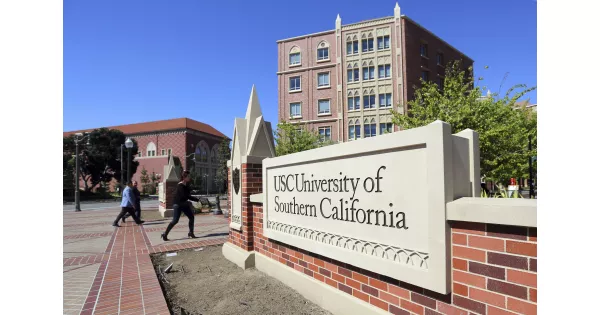Donald Trump, the Republican nominee for president, is visiting Aurora, Colorado, a suburb that has been in the news over illegal immigration, as part of his campaign strategy to portray migrants as a threat to smaller American cities and towns. This visit marks the first time either presidential campaign has visited Colorado ahead of the November election, a state that consistently votes Democratic statewide. Trump, known for his hardline stance on immigration, has long promised to implement the largest deportation operation in U.S. history and has made this issue central to his political identity since his first campaign in 2015.
Trump's recent focus on specific smaller communities experiencing large influxes of migrants, coupled with local tensions over resources and anxieties among longtime residents regarding demographic shifts, has escalated the issue. Aurora gained attention in August when a video circulated showing armed men in an apartment building housing Venezuelan migrants. Trump has repeatedly asserted that Venezuelan gangs are taking over buildings, despite authorities clarifying that the incident was confined to a single block and the area is now safe.
Trump and his running mate, Ohio Sen. JD Vance, have also spread misinformation about a community in Springfield, Ohio, where Haitian immigrants were falsely accused of stealing and eating pets. Trump, in a recent California news conference, declared, "It's like an invasion from within, and we're going to have the largest deportation in the history of our country, and we're going to start with Springfield and Aurora."
While Ohio and Colorado are not considered competitive states in the presidential race, Trump's message on immigration is strategically targeted at states that are. Vance recently campaigned in Eau Claire, Wisconsin, a city of 70,000 that has resettled refugees from Africa and Asia, promoting Trump's plan to increase deportations and arguing that smaller communities are "overrun" by immigrants who burden local resources.
Trump's deportation vow extends beyond "criminals," a promise he shares with Vice President Kamala Harris, his Democratic rival. He aims to deport Haitian immigrants legally residing in Springfield and even those he labels as "pro-Hamas radicals" protesting on college campuses. He has vowed to revoke the temporary protected status granted to Haitians allowing them to stay in the U.S. due to widespread poverty and violence in their home country.
Trump consistently blames Harris and President Joe Biden for the record-high number of arrivals, claiming it fuels violent crime, despite statistics indicating a continued downward trend in crime following a pandemic-era spike. On the campaign trail, Trump highlights specific cases of murders or attacks involving immigrants who entered the country illegally, labeling them as "animals" and even suggesting that those suspected in homicide cases "have bad genes."
Chris Haynes, an associate professor of political science at the University of New Haven and author of a book on public opinion on immigration policies, analyzes Trump's immigration rhetoric as "episodic branding." This strategy, according to Haynes, may sway some moderate voters to reconsider their support, particularly as it plays on fears and anxieties about immigrants as a threat. He also notes that this rhetoric appeals to Trump's base of low-propensity voters.
Meanwhile, Harris, following in the footsteps of Biden before his decision to abandon his reelection bid, has shifted her stance on immigration to the right, presenting herself as a strong advocate for border security, a perceived weakness in her campaign.
Trump, in a recent speech in Erie, Pennsylvania, criticized Harris's handling of immigration as the "biggest crime story of our time" and threatened to deploy federal law enforcement to "liberate every Pennsylvania town and every town in the United States of America that has been taken over by migrant gangs."
Jeffrey Balogh, an Erie resident, expressed his support for Trump's immigration proposals at the event, citing a recent experience where he felt uncomfortable renting chairs from a business due to the presence of five men who spoke a foreign language and did not speak English. Balogh's sentiment reflects the anxieties and concerns that Trump's messaging seeks to exploit.
WATCH LIVE: Trump holds campaign rally in Aurora, Colorado
Trump's rally on Friday in Aurora, Colorado, marks the first time either presidential campaign has visited this state that votes reliably Democratic in statewide races.





